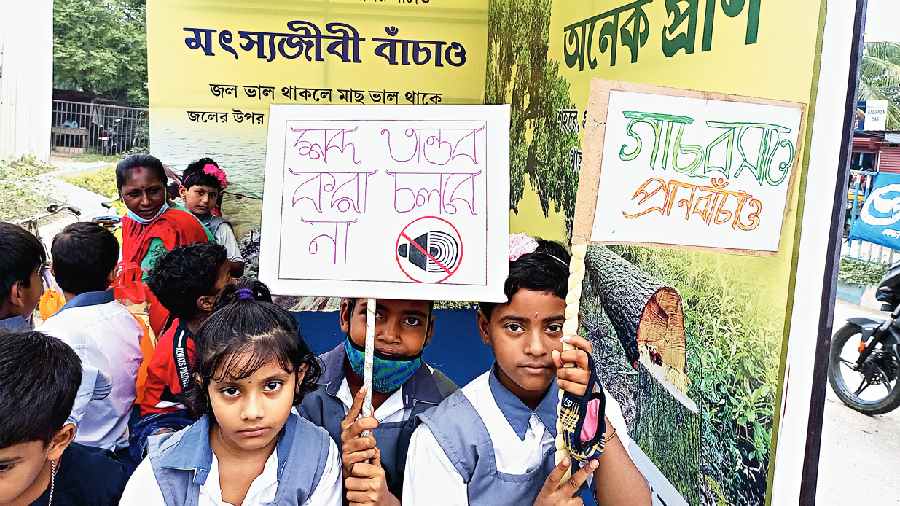Environment crusaders — young and old —walked through some hotspots of Kolkata on Friday seeking implementation of the laws that the government has promulgated to save the city’s natural resources and greenery.
“We wanted to highlight the poor implementation of environmental laws. While the government is asking people to be aware and active about the environment, they themselves hardly seem to be either aware or active on the ground,” said Naba Datta, secretary of environment platform Sabuj Mancha, which organised the walk along with various other organisations.
The rally was held ahead of World Environment Day on Sunday.
With two tableaus, the march started adjacent to the east Kolkata wetlands, considered one of the most important environmental assets of the city.
“More than 350 complaints about illegal water body filling or other land use changes, have been filed by the east Kolkata wetlands authority, the nodal body to monitor the internationally recognised wetlands. But they are lying with the police with hardly any effective action,” said Dutta.
“The filling of water bodies has become a standard livelihood option in the area with patronage of local politicians and the police,” alleged an activist.
Kolkata High Court had in the 1990s banned any change of land use in the 12,500 hectares of the wetlands considered the kidney of the city as it cleans up millions of litres of waste water every day.
The rally also went to the Lake market area opposing the discontinuation of environment-friendly public transport like trams as well as noise pollution in those areas.
“Noise pollution has become a menace in the city, with both DJ-driven noise pollution during several festivities as well as constant honking. There have been clear laws and court directives but hardly any actions are taken against the violators,” alleged Dulal Bose, an ENT specialist.
“There is a judicial verdict that no microphone can be blared without fitting sound limiters. But the compliance is zero. Both the police and PCB look the other way,” said Biswajit Mukherjee, retired chief law officer in the pollution control board and former high court-appointed special officer.
There is no dearth of environmental laws but their implementation on the ground is questionable.
“Look how the government treats the key issue of climate change and air pollution. While the whole world has been trying to emphasise non-fossil fuel driven vehicles like cycles and eco-friendly modes of transports like tram; the policy makers here are actually discouraging those,” said Sasanka Deb, an activist.
While trams have come back to many major cities of the world their number is dwindling every passing day with hardly 20 to 25 trams on the roads.
